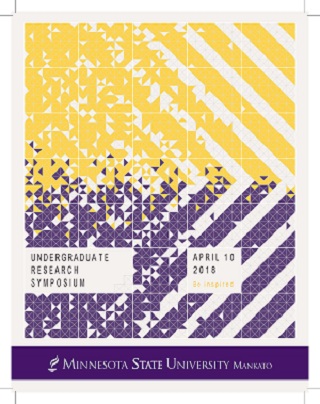YWCA - Ready to Learn Program Review and Data Analysis Project
Location
CSU Ballroom
Start Date
10-4-2018 2:00 PM
End Date
10-4-2018 3:30 PM
Student's Major
Psychology
Student's College
Social and Behavioral Sciences
Mentor's Name
Jeffrey Brown
Mentor's Department
Psychology
Mentor's College
Social and Behavioral Sciences
Description
Children lacking proper cognitive and social stimulation early on have a disadvantage when they begin school (e.g. Burger, 2010). For children in immigrant families, this is crucial; their additional needs for adaptation to a society and language differ from those of their caregivers. Early pre-academic, social-emotional, and English language preparation will increase their chance for success when they enter American schools. School readiness- defined in terms of social emotional, communication, gross and fine motor, problem solving, personal, and social skills- strongly predicts later school achievement and behavioral difficulties within the school environment. Using the Ages and Stages Questionnaire (ASQ), this project aims to assess outcomes of the YWCA of Mankato, Minnesota's Ready to Learn program for immigrant families in the Mankato area (Bricker et al., 1999). The ASQ scale measures major developmental milestones in young children. The program's scope includes approximately 30 immigrant families; the Ready to Learn program consists of teaching pre-academic skills to children before they reach school age. These essential pre-academic skills foster positive long-term academic and social-emotional outcomes (e.g. Dowsett, Huston, Imes, & Gennetian, 2008; Johnson, Padilla, & Votruba-Drzal, 2017). It was anticipated that children who go through the ready to learn program will finish the program with higher ASQ scores from before they began and therefore have more developed kindergarten skills to be more prepared. This poster will present results from the Ready to Learn program, and associated ASQ assessment data to review how family outcomes have changed over a two month period.
YWCA - Ready to Learn Program Review and Data Analysis Project
CSU Ballroom
Children lacking proper cognitive and social stimulation early on have a disadvantage when they begin school (e.g. Burger, 2010). For children in immigrant families, this is crucial; their additional needs for adaptation to a society and language differ from those of their caregivers. Early pre-academic, social-emotional, and English language preparation will increase their chance for success when they enter American schools. School readiness- defined in terms of social emotional, communication, gross and fine motor, problem solving, personal, and social skills- strongly predicts later school achievement and behavioral difficulties within the school environment. Using the Ages and Stages Questionnaire (ASQ), this project aims to assess outcomes of the YWCA of Mankato, Minnesota's Ready to Learn program for immigrant families in the Mankato area (Bricker et al., 1999). The ASQ scale measures major developmental milestones in young children. The program's scope includes approximately 30 immigrant families; the Ready to Learn program consists of teaching pre-academic skills to children before they reach school age. These essential pre-academic skills foster positive long-term academic and social-emotional outcomes (e.g. Dowsett, Huston, Imes, & Gennetian, 2008; Johnson, Padilla, & Votruba-Drzal, 2017). It was anticipated that children who go through the ready to learn program will finish the program with higher ASQ scores from before they began and therefore have more developed kindergarten skills to be more prepared. This poster will present results from the Ready to Learn program, and associated ASQ assessment data to review how family outcomes have changed over a two month period.
Recommended Citation
Krein, Quincey and Linh Hoang. "YWCA - Ready to Learn Program Review and Data Analysis Project." Undergraduate Research Symposium, Mankato, MN, April 10, 2018.
https://cornerstone.lib.mnsu.edu/urs/2018/poster-session-B/7




